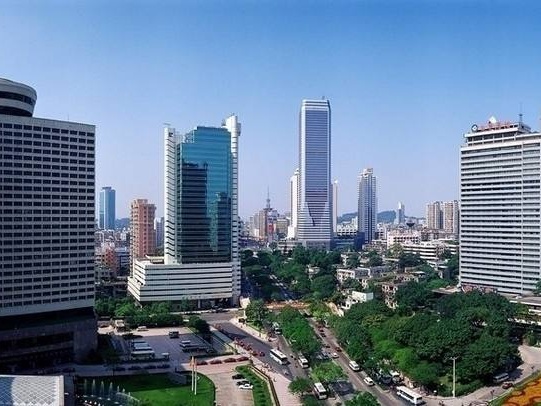URUMQI, March 26 (Xinhua) -- Masks are required while popcorn is discouraged. After a 50-day shutdown due to the COVID-19 epidemic, the China Film Cinema in Urumqi, capital of northwest China's Xinjiang Uygur Autonomous Region, reopened last week to gradually growing movie-goers.
As one of the micro-economic indicators, the box office has been regarded as a mirror of the country's consumption steam. As the epidemic wanes, cinemas across China are staging the comeback of the country's resilient economy.
Some 500 cinemas across the country had reopened by Tuesday, with box office climbing by 35 percent over Monday and Xinjiang making up the lion's share, according to Chinese film database Maoyan.
The world's second-largest economy has been walking a fine line in balancing epidemic control and economic revival, offering a leaf that other virus-hit economies can take out of China's book.
SAFETY FIRST
China's efforts to restore economic activities are strictly predicated on keeping necessary containment measures in place, with nimble policy adjustments at hand in response to the curve of the epidemic.
At the earlier stage of the outbreak, the country quickly moved to stem the spread of the virus by imposing travel restrictions and isolating the confirmed cases, suspected cases and close contacts, with hospitals and temporary ones set up within two weeks to accommodate patients.
Once the situation began to improve in mid-February, provinces in China are encouraged to take differentiated strategies depending on their epidemic risk levels.
A national guideline required regions with relatively low risks to focus on preventing imported cases and comprehensively restoring the order of production and life, while medium-risk regions to promote work and production resumption in an orderly manner and high-risk regions such as Wuhan to continue to be fully committed to epidemic prevention and control.
Thanks to region-specific restoration measures, economic activities in China are picking up. Restaurants, cinemas and parks gradually reopened, all requiring epidemic prevention measures such as taking temperature and wearing masks.
DIGITAL CUSHION
While some sectors of consumption took a hit as people holed up at home to minimize direct contacts, China's digital economy is churning out as many online options as possible, including e-commerce to keep the consumer market warm.
American sportswear brand Skechers registered a 58-percent sales increase at Tmall.com during an online shopping bonanza in early March. "The epidemic incentivized companies to expand their online footprint and adapt to new consumption trends," said Willie Tan, CEO of Skechers China.
Consumer confidence online was buoyed by China's strong courier industry, which had resumed nearly half of its normal delivery capacity in mid-February and over 80 percent in early March to meet the growing e-commerce demand. Some deliverymen even came out with innovative services like non-contact delivery to reduce contagion risks.
Telecommuting also took off. Alibaba's workplace service app DingTalk hit a record with 20 million online meetings held on a single day.
The digital economy served as an anchor of stability for the macroeconomy, buffering the blow to many businesses and sectors, said Huang Yiping, an economist at Peking University, adding that the epidemic could catapult a new "contactless" business model.
TARGETED BOOST
For each specific facet of the economy, including the financial market, investment and consumption, China has tailored policy toolkits to help spur short-term recovery while aiming at long-term growth.
China's central bank has sought to maintain ample liquidity in the financial market by announcing targeted reserve requirement ratio cuts for eligible banks starting March 16. Specific measures include slashing 123.9 billion yuan (about 17.5 billion U.S. dollars) in social security contributions for companies nationwide in February.
The country has also embraced the accelerated construction of new infrastructure, namely digital facilities such as 5G base stations and big data centers, to invigorate investment and provide platforms for future consumption trends featuring smart technologies and enhanced online services.
To encourage spending, cities like Ningbo and Nanjing in east China are issuing vouchers for households to offer them discounts or subsidies in shopping and traveling.
"Together with the policy support that is being provided, the widespread reopening of firms and the fact that employees are returning to work makes us hopeful that we will see a strong recovery starting in the second quarter of 2020," said Helge Berger, the IMF's China mission chief and assistant director in the Asia and Pacific Department, acknowledging that China's policies made a difference in fighting the COVID-19 pandemic and mitigating its impact.
"China has always come back strong when facing severe challenges, and we see the resilience of the Chinese people again this time," said Frank Heinricht, chairman of the board of management at German specialty glass maker SCHOTT AG.
"Just as the Chinese saying goes: 'Not even wildfires can destroy the grass. They grow again with the breeze of spring.'"




 A single purchase
A single purchase









